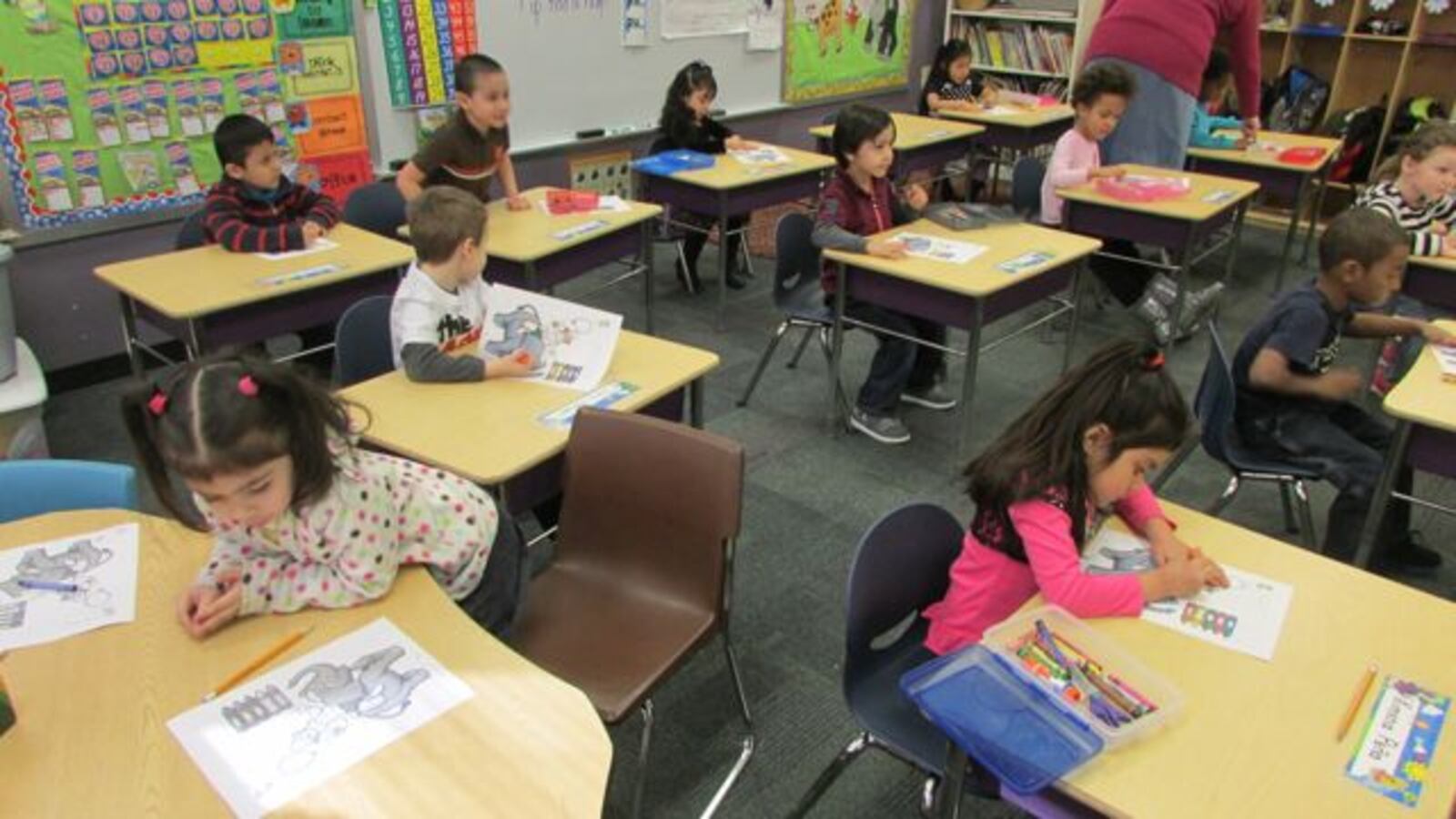A last minute compromise today revived a preschool pilot, which then passed the legislature, giving Gov. Mike Pence a chance to sign into law a program that would put Indiana among 41 states that offer direct aid for preschool tuition for the first time.
Pence, who made preschool one of his top legislative priorities, is expected to sign House Bill 1004. The revised version of the bill passed the House 92-8 and the Senate passed it 40-8. For supporters of preschool, it was the foot in in the door for greater support of preschool that they’ve sought for several years.
“This is the best thing we’ve done for children, education and the impoverished in Indiana,” said Rep. Shelli Vanderburgh, D-Crown Point.
But skeptics warned that the program, while small, would likely grow and could prove costly.
Sen. Scott Schneider, R-Indianapolis, opposed the bill, saying it would clear the way to a wide expansion of preschool funding even before any study of its effectiveness is complete.
“This could have a catastrophic impact on the state of Indiana,” he said. “It could be a budget buster.”
The last day of the legislative session began this morning with a conference committee meeting of Democrats and Republicans from the Senate and House to sort out differences that had stalled the bill for more than a week. The key question was whether the state should start paying for poor children to attend preschool or wait until a study was undertaken.
The House version bill, with a pilot program for about 1,000 children, overwhelmingly passed but hit a road block in the Senate. Worried about costs, Republican Senators removed the pilot and replaced it with a summer study committee to examine the issue. Democrats objected to a provision in the bill that made participants automatically eligible to receive private school tuition aid under the K-12 voucher program when they completed preschool.
The compromise removed the connection to K-12 vouchers, winning Democratic support. Lawmakers also found a new funding source.
The bill would fund the preschool program from the budget of the Family and Social Services Administration by allowing the agency to keep up to $10 million Pence had ordered it to cut due to poor revenue projections so it could use that money to fund the program.
In addition, the bill now allows preschool providers or FSSA to match another $5 million in grants or private contributions. The entire program, therefore, could spend $15 million in public and private money on tuition support for children to attend preschools.
The revised bill focusing the program on poorer children. It drops the income eligibility limit for a family four to $30,289 annually, down from the prior plan to allow those with income up to $44,122. For families, tuition aid would range between $2,500 and $6,800 a year depending on income House Speaker Brian Bosma said the pilot could serve as many as 4,000. It is only limited by budget. There is no cap on the number of participants.
Other provisions in the bill:
- It requires parental involvement.
- It allows up to $1 million of the funding to support a study of the program’s effectiveness.
- The pilot would operate in five counties selected by FSSA.
- It can start as early as next fall, if FSSA can design and implement the pilot that quickly.

